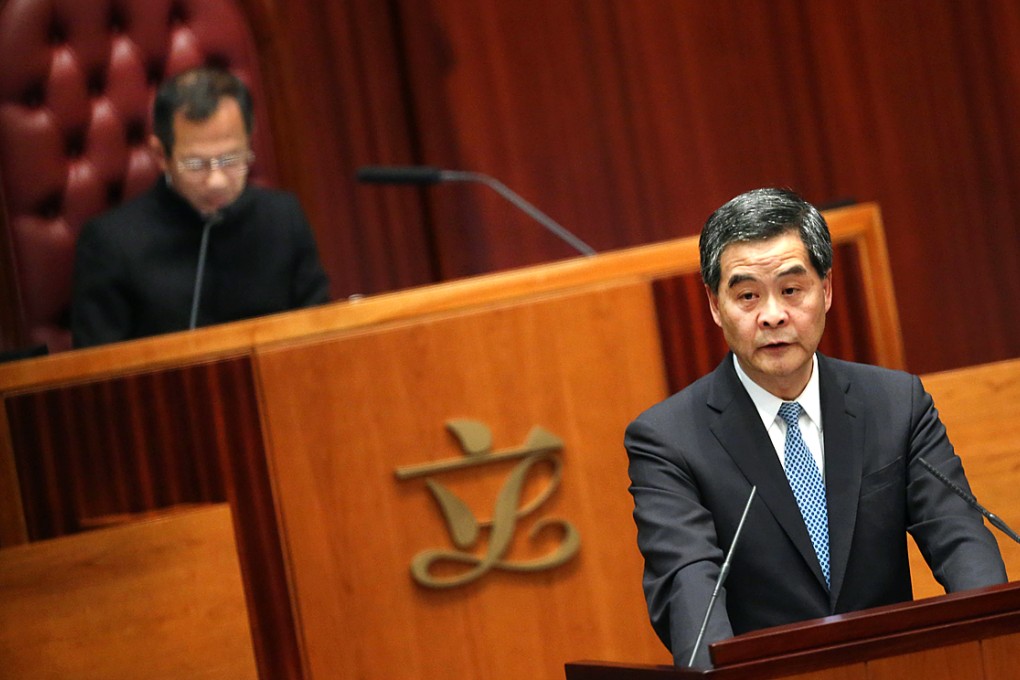Advertisement
Review | 2015 policy address: as it happened
Leung Chun-ying today gave his third policy address, which sets out the government's agenda for the coming year. Here are the highlights.
Reading Time:14 minutes
Why you can trust SCMP

Leung Chun-ying today announced measures aimed at boosting competitiveness, attracting overseas talent and easing the housing crisis, in his third policy address.
Advertisement
Advertisement
CY LEUNG'S CLOSING SPEECH: “Hong Kong’s development into a world metropolis is the combined effort of many generations. We should treasure what we have achieved. The rule of law is the cornerstone of our prosperity and stability. Everyone is equal before the law, and everyone must obey it. There is no excuse for anyone to break the law.
Advertisement
Select Voice
Choose your listening speed
Get through articles 2x faster
1.25x
250 WPM
Slow
Average
Fast
1.25x